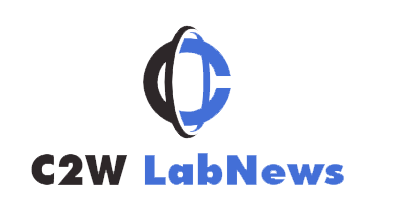
The European Union is pressing AstraZeneca to deliver the vaccines as promised
On Monday, the European Union criticized the pharmaceutical company AstraZeneca, accusing it of failing to ensure delivery of Coronavirus vaccines without a correct explanation, and threatening to impose strict export controls within days on the COVID-19 vaccines made in the block.
Health Commissioner Stella Kyriakides said that the European Union, which is already facing severe criticism for its slow introduction of the vaccine in its 27 countries, “will take whatever action is required to protect its citizens and their rights.”
The European Union, which has 450 million citizens and the economic and political influence of the world’s largest trading bloc, is lagging far behind countries such as Israel and Britain in rolling out coronavirus vaccines to health care workers and the most vulnerable people. This is despite more than 400,000 confirmed virus deaths since the start of the pandemic.
The shortage of planned deliveries of the AstraZeneca vaccine, which is expected to get medical approval in the bloc on Friday, along with the hiccups in the distribution of Pfizer-BioNTech shots, is putting European Union countries under pressure.
“EU member states are united: vaccine developers have societal and contractual responsibilities that they need to support,” Kyriakides said after two tense negotiations with AstraZeneca that concluded late on Monday. The two sides will hold a meeting on Wednesday.
The backlog has been mounting anger since Kyriakides said the European Union has paid 2.7 billion euros ($ 3.28 billion) to several pharmaceutical companies to support rapid development and increase the production potential of many vaccines.
She said Monday’s talks ended “in indignation due to the lack of clarity and insufficient explanations.” The open lack of confidence contrasted sharply with the jubilant tone just a few months ago when the pharmaceutical giants took rapid and massive steps toward a pandemic vaccine like we had not seen in over a century.
“With our member states, we asked (AstraZeneca) a detailed planning of the vaccine deliveries and when the deployment will take place,” she said in a message on Twitter.
Kyriakides immediately secured support from the largest members of the bloc in the vaccine export control scheme.
German Health Minister Jens Spahn said: “We, as the European Union, must be able to know if and what vaccines are exported from the European Union.” Only in this way can we fail to understand whether our contracts with the European Union producers are being fairly offered. It is logical to commit to obtaining approval for vaccine exports at the European Union level. ”Humanitarian aid deliveries will be exempt.
European Commission President Ursula von der Leyen held urgent talks with AstraZeneca President Pascal Suriot, and European Union countries also met with AstraZeneca to encourage the British-Swedish company to intensify vaccine production and achieve its contractual goals.
The European Union has committed to purchase 300 million doses of AstraZeneca with an option for an additional 100 million doses. The company said late last week that it planned to cut the first batch from 80 million to 31 million.
The European Medicines Agency is set to review the Oxford-AstraZeneca vaccine for the Coronavirus on Friday, and approval is strongly expected. AstraZeneca vaccine is already used in Britain and has been approved for use in emergency situations by six countries, including India, Pakistan, Argentina and Mexico.
AstraZeneca’s announcement that it will offer fewer vaccines to the European Union early added to the pressure on the bloc, especially since the Pfizer-BioNTech vaccine, the first vaccine to receive EU approval, last week failed to keep up with promised deliveries to the European Union. Pfizer temporarily cut vaccine deliveries to the European Union and Canada while it revamps its plant in Belgium to increase overall production. Italy threatened to sue Pfizer over the delay.
The political pressure began with a phone call from von der Leyen to AstraZeneca’s boss. “It has made clear that it expects AstraZeneca to implement the contractual arrangements stipulated in the advance purchase agreement,” said its spokesperson, Eric Mamer.
“Mr Soriot reminded that the European Union has invested large sums up front in the company specifically to ensure production increases even before a conditional market license is delivered by the European Medicines Agency.”
The company said in a statement that Soriot “stressed the importance of working in partnership and how AstraZeneca is doing everything in its power to bring its vaccine to millions of Europeans as quickly as possible.”
The delays will make it more difficult to achieve early targets in the European Union’s goal of vaccinating 70% of the adult population by late summer.
The European Union has signed six vaccine contracts for more than 2 billion doses, but only Pfizer-BioNTech and Moderna have been approved for use so far.
___
Jerry Molson in Berlin and Danica Kerka in London contributed to this report.
___
Follow all AP coverage of the pandemic at:
https://apnews.com/hub/coronavirus-pandemic
https://apnews.com/hub/coronavirus-vaccine
https://apnews.com/UnderstandingtheOutbreak
